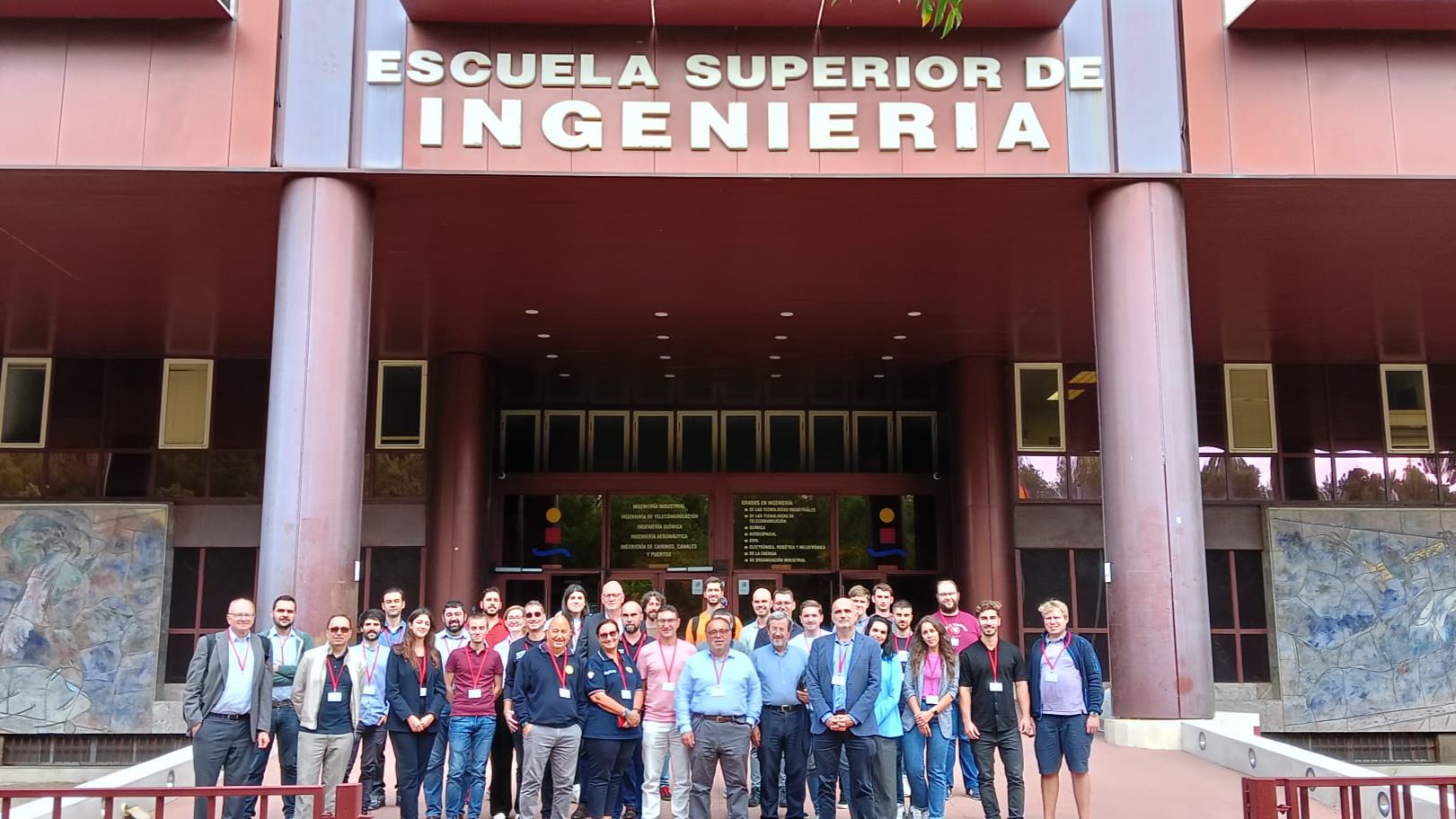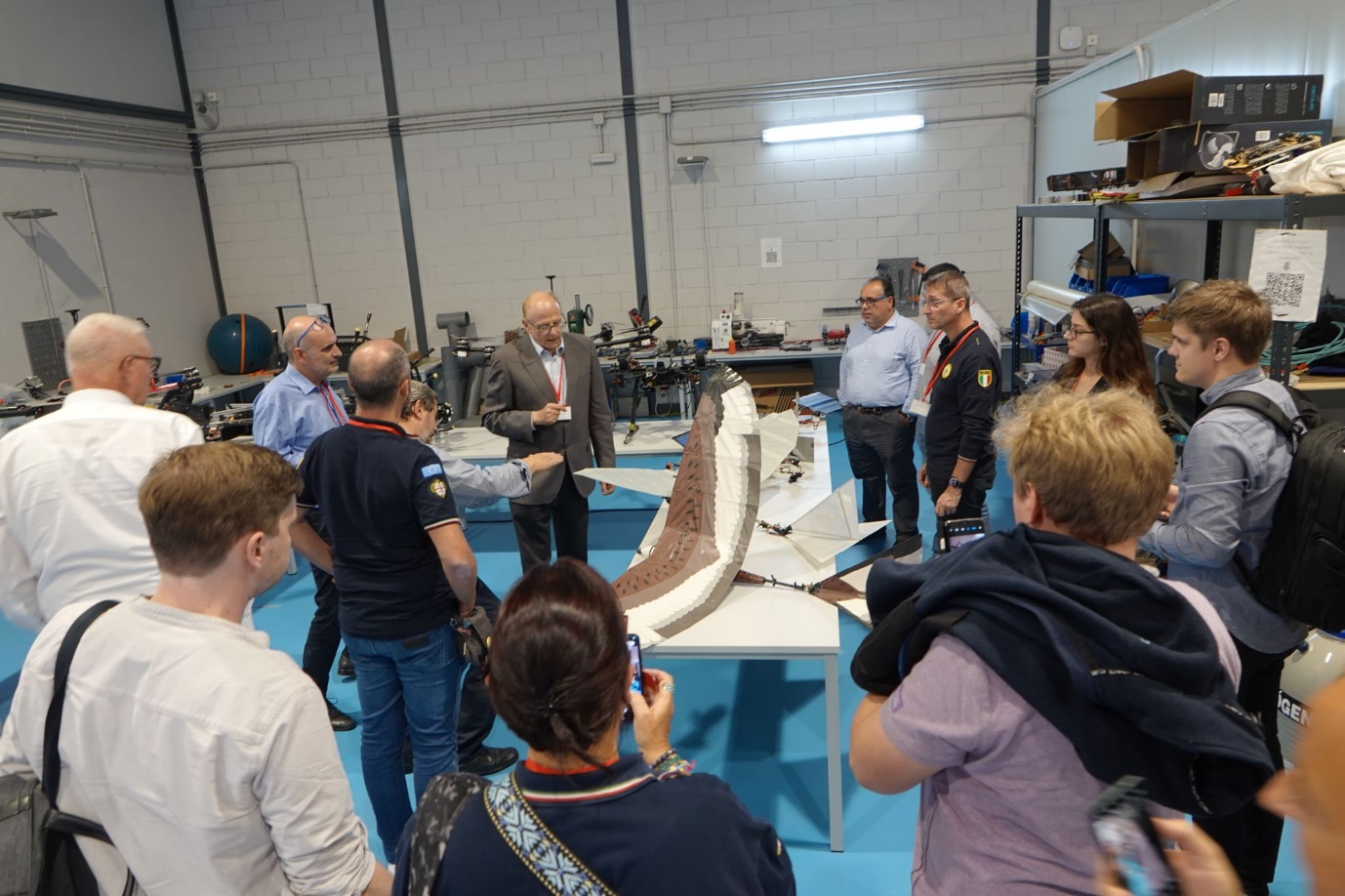Sixth TEMA Consortium and General Assembly Meeting in Seville

15 October 2024
José Ramiro Martínez-de Dios, Full Professor at Universidad de Sevilla
On 8 and 9 October 2024, the sixth meeting of the Horizon Europe project TEMA (Trusted Extremely Precise Mapping and Prediction for Emergency Management) was held in the vibrant city of Seville, Spain.
Hosted by the GRVC Robotics lab from the University of Seville, a technical partner specialising in robotics, this meeting brought together 18 partners from Austria, Belgium, Finland, Germany, Greece, Italy, the Netherlands and Spain. The TEMA project aims to significantly enhance Natural Disaster Management (NDM) strategies for critical events such as fires and floods, ultimately benefiting Civil Protection Agencies and first responders. The initiative is focused on developing an innovative platform designed to manage and predict emergency situations stemming from extreme weather phenomena. This platform promises to provide timely and actionable insights to improve preparedness and response efforts.
During the plenary session in Seville, participants engaged in comprehensive discussions regarding the project’s current progress, as well as identifying key priorities for the upcoming phases. After an insightful introduction by Prof. José Ramiro Martínez de Dios, the meeting was primarily moderated by Prof. Ioannis Pitas, who is leading the TEMA project on behalf of Aristotle University of Thessaloniki.
A key aspect of the meeting centered on the hardware and software requirements necessary for the upcoming trials associated with the TEMA project. In parallel, the second Hackathon was conducted, focusing on the integration of the technical products developed by participating technical partners into a Business Mission (BM) grounded in historical data from a fire event in Montiferro, Italy and a flood event in Arthal, Germany. Throughout this collaborative Hackathon, partners worked closely to evaluate and refine the workflow of the TEMA system, ensuring its effectiveness in addressing NDM events. Looking ahead, a third Hackathon is planned for December 2024, which will be conducted remotely, while a testing Hackathon is scheduled for March 2025 in Germany, organized and hosted by DLR.
The partnership is also delving into innovative research areas concerning the intelligent management of edge nodes situated near potential natural disaster zones. These edge nodes are engineered to establish immediate communication infrastructures utilizing autonomous drones, next-generation weather stations, and sensors equipped with cutting-edge artificial intelligence algorithms, thereby enhancing situational awareness and response capabilities.

At the conclusion of the first day, the project team had the opportunity to visit one of the main facilities for research, development, and testing of aerial robotics operated of the GRVC Robotics Lab group of the University of Seville. This visit provided valuable insights into the practical applications of their work within the project.
To enhance team cohesion and strengthen collaborative relationships, the project team gathered for a formal dinner at Casa Montalván, an esteemed restaurant situated in Seville's historic district of Triana. In an atmosphere rich with cultural heritage, team members savored a thoughtfully curated selection of traditional Spanish cuisine, showcasing local specialties that highlight the region's culinary excellence. This gathering provided not only an exceptional dining experience but also a valuable opportunity to build rapport and strengthen professional relationships within the team, all in a welcoming environment that encouraged open dialogue and collaboration.

